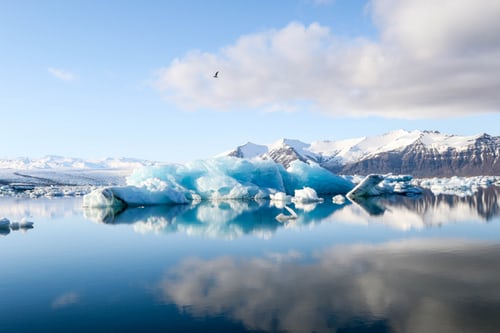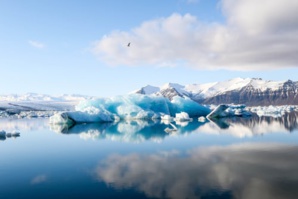Experts have warned that the world facing the effects of climate change in the form of increased droughts, flood and temperature rise is “woefully unprepared” to deal with the outcomes especially when it comes to fresh water supplies from the mountains.
Nearly fifty percent of global drinking water demands are met by the supplies of water sourced from the mountains, while the warmer climate is causing glaciers to melt down and changing the patterns of precipitation, whereby affecting various countries as unpredictability reigns the situation.
Excess melting of glaciers, for example in the Alps, results in flash floods while depleting snow covers, like in the Andes, bring in droughts. Scientists at the “World Meteorological Organization” in Geneva, met for the “High Mountain Summit”, wherein they sought for better collaboration between, researchers, space agencies as well as the governments.
In the words of Canada’s University of Saskatchewan’s professor, as well as the co-chairperson of the event, John Pomeroy:
“We are woefully underprepared. Our infrastructure was built in the 19th and 20th centuries in the mountains and downstream of the mountains and we don’t have that climate any more”.
According to Switzerland’s estimation, the country witnesses a damage of “1 billion Swiss francs”, equivalent to “$1 billion”, annually in the form of infrastructure damage. However, poorer countries will lack the fund to cope up with these challenges. The other co-chairperson of the summit, the Executive Director of the “Mountain Research Initiative at the University of Bern”, Carolina Adler said:
“There are quite some gaps not only in the way our infrastructure has been designed but also the infrastructure we have in place to monitor for change”.
Pomeroy pointed out that we need redesigning of water systems, dams and irrigation methods to tackle the challenges presented by climate change. Moreover, data on water is still in its initial stages. Therefore, it will be a challenge to get the governments on board to share their respective hydrology data. In fact, some may consider this to be impinging on “national security”, thus the matter becomes “very sensitive”, explained one official/
However, cooperation is the only key to avoid conflict and tensions. One of the aim listed in the summit’s draft agenda, as seen by Reuters, was to create “the Integrated High Mountain Observation and Prediction Project” which will be generating early warnings for hazards.
While Pomeroy also added:
“We may decide that some communities are located in inherently dangerous situations and need to be moved and migration may be part of this, so these are very serious considerations”.
References:
reuters.com
Nearly fifty percent of global drinking water demands are met by the supplies of water sourced from the mountains, while the warmer climate is causing glaciers to melt down and changing the patterns of precipitation, whereby affecting various countries as unpredictability reigns the situation.
Excess melting of glaciers, for example in the Alps, results in flash floods while depleting snow covers, like in the Andes, bring in droughts. Scientists at the “World Meteorological Organization” in Geneva, met for the “High Mountain Summit”, wherein they sought for better collaboration between, researchers, space agencies as well as the governments.
In the words of Canada’s University of Saskatchewan’s professor, as well as the co-chairperson of the event, John Pomeroy:
“We are woefully underprepared. Our infrastructure was built in the 19th and 20th centuries in the mountains and downstream of the mountains and we don’t have that climate any more”.
According to Switzerland’s estimation, the country witnesses a damage of “1 billion Swiss francs”, equivalent to “$1 billion”, annually in the form of infrastructure damage. However, poorer countries will lack the fund to cope up with these challenges. The other co-chairperson of the summit, the Executive Director of the “Mountain Research Initiative at the University of Bern”, Carolina Adler said:
“There are quite some gaps not only in the way our infrastructure has been designed but also the infrastructure we have in place to monitor for change”.
Pomeroy pointed out that we need redesigning of water systems, dams and irrigation methods to tackle the challenges presented by climate change. Moreover, data on water is still in its initial stages. Therefore, it will be a challenge to get the governments on board to share their respective hydrology data. In fact, some may consider this to be impinging on “national security”, thus the matter becomes “very sensitive”, explained one official/
However, cooperation is the only key to avoid conflict and tensions. One of the aim listed in the summit’s draft agenda, as seen by Reuters, was to create “the Integrated High Mountain Observation and Prediction Project” which will be generating early warnings for hazards.
While Pomeroy also added:
“We may decide that some communities are located in inherently dangerous situations and need to be moved and migration may be part of this, so these are very serious considerations”.
References:
reuters.com






